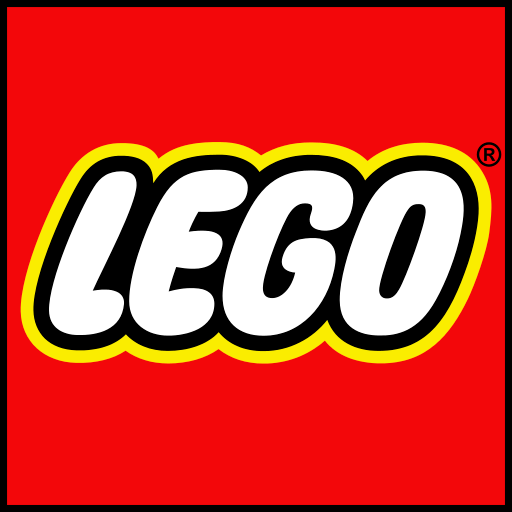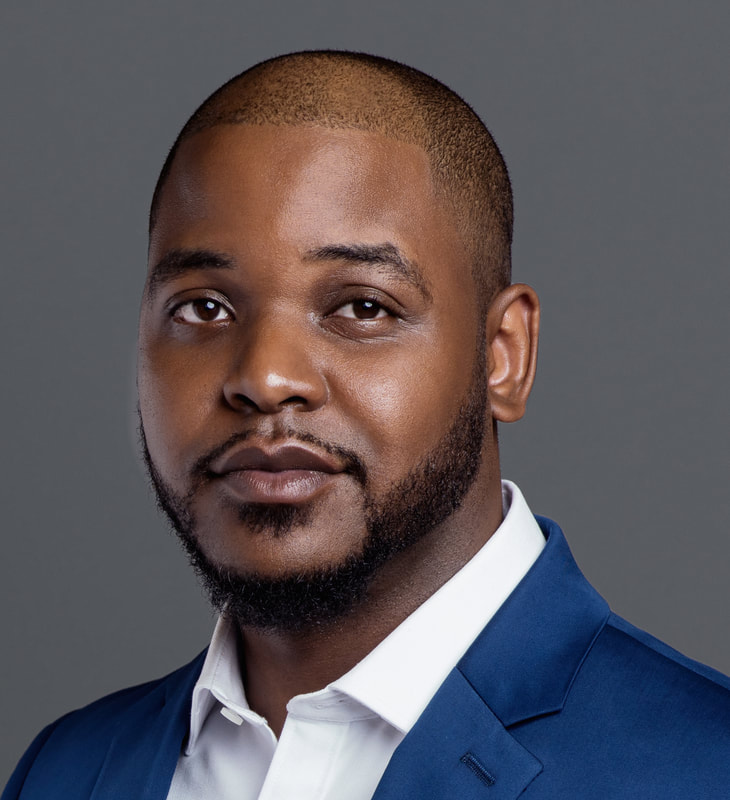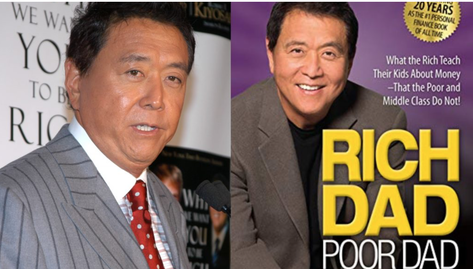FINANCIAL EDUCATION,Here are 10 answers to why financial education is importantApril is like the Super Bowl of Financial Literacy with educators and students alike doubling down on their efforts to teach/learn the "right" way to handle their personal finances. Recently I was able to participate in a Twitter Chat with Experian where I shared insights into issues around different financial topics. I'm including the Q&A below so that it might inspire others to chime in or take action.
Q1: Why is financial education important? A: Financial education is important in order to be aware of and make proper use of the tools relating to managing your personal finances. Q2: What financial topics should a person have knowledge about? A: Budgeting, savings, investing (short and long term), and Credit management. Q3: When is it appropriate to start teaching your kids about personal finance? A: As soon as they are able to understand the value of one thing in exchange for something else. During formidable years it's important to structure what that looks like so we don't perpetuate a cycle of trading TIME for MONEY. Related: 5 Lessons I Learned About Entrepreneurship By Overcoming Poverty Q4: How can adults learn more about personal finance? A: In my TEDtalk my call to action is "Build a team!" Adults can learn more about personal finance by surrounding themselves with mentors and capable others in the space to help educate and inform them on processes/strategies that make sense for them. Q5: Where should financial education be taught? A: Robert Kiyosaki says that the European system of education was designed to create employees & soldiers; people who take orders. I don't think it's enough to rely on public education to teach finlit. It should be taught at home, in religious and community centers. Q6: What resources are available to help people learn about personal finance? A: There are books, podcasts, articles, courses, coaches, and free events via banks and financial institutions. The information is out there. The challenge is getting people empowered enough to seek it out and take action! Q7: How can you promote financial education in your community? A: By releasing the feelings of guilt, anxiety, & fear around managing finances and by having advocates continue to raise awareness by telling their story and relating their expertise to others. "There are no guru's just ppl who have mastered their situation. " Q8: How can being financially literate help you improve your credit? A: I always like to refer to credit as a "game". You learn the rules...then you make the rules work for you. Financial literacy is doing just that. You can't play the game well if you don't know the rules. Related: 7 Business Takeaways You Can Learn From Monopoly Q9: How can financial literacy help you achieve your financial goals? A: Financial literacy gives you a roadmap to first determine what your goals are. There are people who simply don't know what they don't know. Financial literacy can give you a birds eye view (and a roadmap) to what's possible on your path to determine what's possible for YOU. Q10: What do you feel is the most important financial literacy subject? A: The most important subject is actually an often neglected one and that is cultural competence related to mindset. If we are talking above the level of understanding our audiences can connect w/ or digest then what are we doing? We need to understand their mindset. There we have it. 10 questions supplied by Experian with answers from yours truly on #financialliteracy . If there are any questions YOU have an answer to that build on or is different from mine please feel free to leave it in the comments. This weekend I helped facilitate a full day financial literacy and empowerment workshop and one of the participants said something to me that stopped me in my tracks.
"I don't mean to be a pessimist but I've had a hard life. I lost a lot early on and so I'd rather enjoy my money now than try and save and grow it for the future" The participant also shared with me that his most recent accomplishment was paying off his prized motorcycle and he'd like to eliminate additional debt and purchase a house at some point in the future. The reason his statement stopped me in my tracks is because I realize that I, like many other financial educators, fall into the trap of assuming that others interested in financial education have the same or similar goals to my own. We push this concept of wealth building by deferring gratification, leaning out your spending, and remaining disciplined. We become so passionate about our position and perspective that we may even make people feel guilty for living their lives the way they want. I acknowledged the participants comment by thanking him for providing a diversity of thought in the group and acknowledging where he was mentally and financially. I agreed that he should live his life the way he wants and that his goals do not exempt him from the value of understanding his finances, in fact it will enhance his experience in "living his best life"! I wanted to share this interaction as maybe your money goals and desires are realized, will soon be realized, or are completely unknown to you right now and that's ok! Financial education is important for EVERYONE and figuring out how to apply it to your unique situation is the fun part. If you or someone you know is looking for clarity in your business or your financial life feel free to share this post or send a message. I can help! CREDIT,My first approved credit card had a $500 limit. That same card today has a $60,000 limit. Here’s how I did it (not to be taken as advice!):
In the early stages of my building credit my score was impacted by delinquent student loan payments (30 day, 60 day, 90 day, 120 day) which I knew were going to be on my report for 7 years (yikes). I had to navigate around these delinquencies as much as I could. I decided to take an aggressive approach to credit building. First of all I brought my student loan payments current. Secondly I made sure I paid my credit card on time every month, more than the minimum AFTER the bill would post a “statement balance” (major key!) After the first year of positive payment history I decided to request a credit line increase. I tripled my credit line from $500 to $1500. Making sure I kept the utilization under 30% I rinsed and repeated my process (on time payments, etc). Every 6 months to a year I’d request another line increase. I was strategic with these request because they often resulted in a hard credit pull. Once I got to about 3k limit I applied for another bank card. Key word… bank card. I timed my credit pulls so that they would fall off at the same time. (Credit line increase, 1 new credit card same day. Wait six months increase both same day, etc.) As I grew in my career (and my business) I could report a higher income each year. Higher income, low utilization, on time payments meant a higher credit score. My delinquency, and lack of credit history were the only things holding me back so I focused on what I could control. My behaviors. When I hit 10 and 20k limits on my cards I started spacing out my increase requests from 6 month increments to year or two increments. I also found cards that don’t do a hard pull everytime I wanted an increase (Citi/Amex). Eventually I stopped requesting. My inquiries fell off. High limit+ low utilization + low inquiry’s + on time payments+ varied accounts (including installment loans) + no negative remarks = 800 plus credit score. I read once that an 800 credit score has purchasing power of 100k… I’m here to tell you that is #BigFacts I recently told a story about how when I was a child I woke up one morning and went to greet my grandfather in my underwear. His response to me was "Go put some pants on!" Now this lesson can be interpreted in many different ways but financially speaking there are too many people who not only get caught with their "pants down" but with their pants completely off!
Many people might be experiencing FOMO or the fear of missing out in relation to investing in Apple #aapl or Tesla #tsla stock so I wanted to share a quick insight on the topic.
I recently decided to buckle down and eliminate some consumer debt that I’ve accumulated. The plan: eliminate unnecessary expenses, pause investment contributions, and aggressively pay down debt. If you know me, you know that I LOVE Apple stock and with the opportunity to invest at a lower price point I became tempted to buy more! Literally EVERYONE on social media is talking about buying Apple or Tesla due to the split and I’d be lying if I said I wasn’t experiencing a fit of FOMO myself. I decided however to stay the course and stick to my plan. The thing is, Apple and Tesla (hopefully) will be there as well as many other opportunities to invest in the future. It’s great that people want to invest and I am a huge advocate for it, however not to the detriment of YOUR financial plan. Personal finance IS PERSONAL and therefore what works for me or the next person isn’t necessarily going to work for you. In fact what worked for you 6 months ago may not work for you today. The key is to be honest, be intentional, have a plan, and stick to that plan, whatever it may be. Also NEVER invest money you can’t afford to lose. I am someone who can help with that plan, but there are many resources out there that can help as well. Don’t succumb to the fear of missing out. Do what’s best for you. Originally posted on Medium.com ENTREPRENEURSHIP, POVERTYWhen someone hears the statement “I wanted to be poor,” they might twist up their face in confusion before thinking to themselves who would ever want to be poor? Interestingly however, there are many people who aspire to be poor without even knowing it.
I often tell the story of how I became acutely aware of the household finances after my parents separated. I would carry the food stamps card, walk my mom’s (often late) rent payments over to property management and shop for deals in the supermarket. I go into details of my experience in my TED talk on financial empowerment. The reason I say I aspired to be poor is because although navigating poverty was unpleasant, it was an exercise in survival — and I learned to survive. Many people sharing this or a similar reality might simply want to survive as well, not necessarily live a life of excess or luxury. It took working as a cashier at a local grocery store for me to realize that there were people who could afford to comfortably buy groceries with cash or on credit without the aid of food stamps. Suddenly I realized that I didn’t just want to survive, but that I wanted to thrive. Here are five things I did to leave behind a poverty mindset and stop wanting to be poor. Changed my surroundings -- I was fortunate enough to be given the opportunity to change my surroundings by leaving what I knew and moving across the country to start anew. Although the prospect of leaving behind everything and everyone I knew was quite terrifying, I decided to take the leap of faith that set me on the path I'm on now. Sometimes a change in scenery, influences and exposure is the spark you need to change your circumstances. Some people will spend their entire lives in the city they grew up in. Whatever your aspiration, success just might be on the other side of fear and the unknown. Invested in education -- There are many paid and free options if you're looking for an education in managing personal finances, entrepreneurship, personal development or anything else you might be interested in. For me, investing meant getting free on-the-job training working in financial services and purchasing books, courses, networking events and seminars. Simply being exposed to concepts, disciplines and practices around wealth-building inspired me to want to learn more and do more. It increased my scope of what was possible and forced me to figure out a path to achieving it. It’s always a good time to learn something new, and with Google at your fingertips, the opportunity to learn is always present. Built a team -- I realized that many of the concepts I had learned were foreign to my peers and the core group of friends and family I spent time with. To take things to the next level, I needed to surround myself with people who had done the things I wanted to do and could show me how it was done. Building strategic relationships was and continues to be incredibly important in my journey as an entrepreneur. Whether it's been paying a professional like a CPA or attorney, finding a mentor or simply networking with somebody who’s connected, building a team has helped to position me for success with each obstacle I’ve encountered or goal I’ve set. Executed on what I learned -- One of the things I’ve had to learn is that you’re never going to be ready, and it’s never going to be perfect. Do it anyway. The fear of failure defeats many people before they ever get started, robbing them of even the faintest taste of success. Executing on what I’ve learned through trial and error has given me the confidence to take bigger chances, invest more and ultimately learn what ends need tightening up. I had to bet on the things I didn't think I was ready for in order to truly leave behind my poverty mindset. Believed in myself -- If I had to sum up my success in one sentence I would say that it all comes down to an undying and unlimited belief in myself. There is no way I could have done anything on this list without the confidence and belief that I deserved more. Believing in myself gave me the courage to relocate, the drive to invest in education, the audacity to network in new circles and the confidence to execute on what I learned. Originally posted on Entrepreneur.com This common piece of financial advice is easily followed when you stick to a budget.The global pandemic has forced many people to reconsider their views and approaches to managing and acquiring money. Whether based in fear, curiosity or opportunity, people are turning to different forms of investing as a means to offset the impact of the global health crisis.
A common piece of financial advice for first-time investors is to “pay yourself first” as a precursor to investing. But if it's common wisdom, why don't more people do it? Here are five reasons people say they don't pay themselves first — and what you can do to remedy it for yourself. 1. You don't make enough money The number one rebuttal I get to the suggestion to pay yourself first is that the individual doesn’t make enough money. I believe there is certainly a reality to that, but in many cases it’s simply not true — but the individuals aren't aware of it because they don't follow a budget. Studies show that only about one-third of Americans prepare a detailed budget, which at a basic level tells you what’s coming in as income and what’s going out as expenses. Without this tool in place, it’s easy to lose sight of spending patterns that aren’t favorable to your ideal saving and investing strategy. The good news is, the fix is pretty simple: Create a budget. Make it as brief or as detailed as you want, as long as you have a good idea of what your monthly expenses are compared to your monthly income. Perhaps there’s an opportunity to eliminate certain expenses you pay but have forgotten about, or to limit expenses you overspend on. Whichever direction you take, a budget is a solid starting point. 2. You don’t understand the financial impact What difference does it make if you pay yourself first? Or second? Or last? As long as you’re saving, it shouldn’t matter when you save, right? Unfortunately, this is not correct. It’s much better to spend what’s left after saving rather than saving what’s left over after spending. Paying yourself last signals to your brain that maintaining discipline is not a priority, and you are apt to keep following this broken pattern. Paying yourself first is something you will get around to if you have time, but not something you are committed to. But when you choose to pay yourself first, you are demonstrating that your greatest financial priority is your financial future. 3. You don’t know how Although it sounds simple enough, paying yourself first can sometimes become a complicated concept. How much do you save? Is there an ideal percentage? What do you do with the money once it’s saved? The answer is just to start somewhere, anywhere, and build from there. If you have a fixed income, each pay period you might calculate a number (say, 10 percent to start) and set it aside. With a fluctuating income, you might make an on-the-spot assessment of how much 10 percent of that week’s check is and set that aside. This is where having a sound understanding of your income and expenses via budgeting can really help out. 4. You don’t have the discipline Let’s face it: A major part of financial success depends on doing things that take time and aren’t fun in the least. Between budgeting, saving and investing, personal financial management can be tedious. Thankfully, there are plenty of tools that can help alleviate some of the budgeting burden, including Mint and EveryDollar. But to start with, I recommend automating your savings. There are several ways to do this, but my favorite is to split a direct deposit across multiple accounts. This allows for me to wake up and have my payment to myself already where it needs to be. No excuses for me to overlook or forget to do it, and typically they can be set by dollar amount or percentage. 5. You don’t have to All of the high-income earners in the room, please stand up. You make so much money, you always have some left over. You don’t have to worry about budgeting, saving or sacrificing because you’re making the big bucks! That is, until you’re faced with a layoff and you have to dip into the funds you put aside — but didn’t put aside with a plan for your future. Your 401(k) becomes your bank account, and soon you are panicking because it’s running out. Things do happen, and it’s better to prepare for an uncertain future than to wing it and hope that nothing bad ever happens. High-income earners are in the best position to stick to a budget, pay themselves first and invest. Take advantage! Originally seen on Entrepreneur. Check out the Entrepreneur article here! Originally seen in Authority Magazine interview with Jason Hartman.
I am utterly disappointed in “Rich Dad, Poor Dad” author Robert Kiyosaki. I feel hurt and betrayed by your words in a tweet posted on Friday, June 12 regarding Black Lives Matter protests. And while I know that you will likely retract, justify, or explain away your statement — which apparently has since been deleted — it won’t change the fact that you made it and likely meant every word.
 photo source: Lego.com photo source: Lego.com LEGO, the notoriously famous toy production company made a bold statement by pulling advertising and marketing promoting a selection of LEGO products as an act of solidarity with the Black community around racism and inequality. Although their message was misinterpreted as having pulled all cop-related toys, LEGO in a public statement clarifies by stating that: “There is no place for racism in our society. We stand with the black community against racism and inequality. Our mission is to inspire and develop the builders of tomorrow, and that includes inspiring them to be tolerant, inclusive and kind. There is more to do and as one small step, we are donating US$4 million to organizations in the U.S. dedicated to organizations that support black children and others that educate all children about tolerance and racial equality. We would like to clarify that we have not removed any sets from sale. The misunderstanding is the result of an email that was sent on our behalf to members of our affiliate marketing program. The intent of the email was to ask that they pause promoting and marketing a selection of LEGO products on their sites. We paused all marketing across our own social channels earlier this week in response to the tragic events in the U.S. We regret any misunderstanding and will be clearer about our intentions in the future.” There are other examples of large companies taking a bold stance against racism through public statements, social media campaigns, and monetary donations, however this action sends a meaningful message that hits several tones including corporate accountability, emotional intelligence, and early childhood education. LEGO is no doubt aware of its audience and the multigenerational presence it’s had in households around the world and has effectively used its platform to take a stance in saying not only that what has happened was wrong, but that there needs to be a change made, and here’s how we plan on making that change via our statement, our marketing campaigns, and our dollars. The protests occurring now internationally in response to the murder of George Floyd by police officer Derek Chauvin and the 3 other police offers who were present at the time address what appears as two issues simultaneously but is really one issue and its symptom, and that is racism and police brutality. With large companies like LEGO taking a stand against injustice on multiple points, it creates space to begin unpacking hundreds of years of injustice that is a daily terror to black Americans and people of color around the world. The company’s decision to donate $4 Million to “organizations dedicated to supporting black children and educating all children about racial equality” is equally telling as this demonstrates a responsibility to not only address the issue of racism with adults and other large organizations, but by breaking the cycle of racism being taught to future generations. The ripple effect of which will hopefully echo across multiple generations just like the LEGO name has with its product line. The timing of these actions following the looting of The LEGO Store on Fifth Ave. in the Flatiron District of New York City is equally powerful as the organization has sustained losses and damage resulting from the outrage around police brutality and the murder of George Floyd. By swiftly reacting with emotional intelligence and a willingness to take action, LEGO’s statement is so much more than just another box checked off. Rahkim is a TEDx speaker, 2x author, and non-profit cofounder. He is active on Instagram/Twitter @RahkimSabree. Check out his book “Financially Irresponsible” available on Amazon. |








